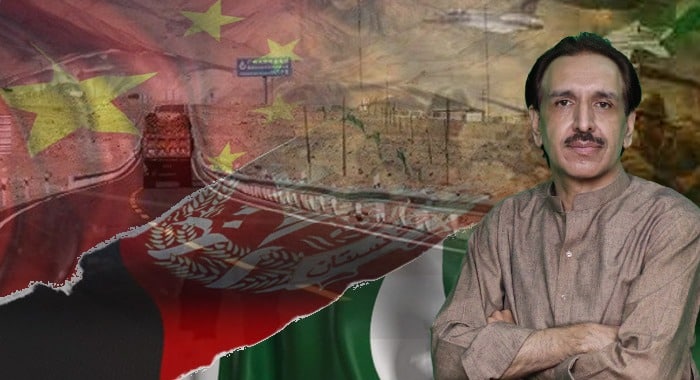When it comes to targeting terrorist elements operating inside Afghanistan, Pakistan has not only shown willingness but has already acted. There have been multiple instances where Pakistan carried out cross-border airstrikes, specifically targeting TTP (Tehreek-e-Taliban Pakistan) and its affiliated groups deep within Afghan territory.
Now, however, the regional dynamics are undergoing a significant realignment. Since May 10, Pakistan has emerged with renewed confidence and a re-calibrated status—both diplomatically and strategically. This repositioning has not only dealt a blow to groups like the outlawed TTP and BLA but also signals a more decisive posture toward domestic political factions that may continue to challenge the writ of the state under outdated narratives.
This shift is evident in Pakistan’s recent re-engagement with Afghanistan, particularly through seasoned diplomat Sadiq Khan. Known for his deep understanding of the Afghan landscape and a history of successful diplomatic tenures, Khan had distanced himself from Afghan affairs in the past due to lack of authority. But now, with full backing from both Pakistan’s federal government and its military leadership, he has returned—this time with real power.
India’s failed attempts to destabilise Pakistan post-Pahalgam, particularly through disinformation campaigns, have only strengthened Islamabad’s regional position. Neighbouring countries like Iran and Afghanistan have come to realise that antagonising Pakistan will come at a cost. On the western border, daily counter-terrorism operations continue in the tribal belt, and groups like TTP and BLA are reportedly on the run—spooked by Pakistan’s rising strategic leverage.
Let us not forget: if a state like Pakistan can tactically defeat a regional power like India, as even major international observers are now recognising, then small militant outfits operating from foreign soil should expect no safe haven moving forward.
Also Read: Three Police Officers Injured in Armed Attack on Swabi’s Utla Police Station
A critical component of this regional reset is Pakistan’s diplomatic pressure on the Afghan Taliban government. For years, Kabul justified its inaction against TTP by claiming lack of capability. But that excuse is becoming obsolete. The message is now clear: Pakistan will no longer tolerate the use of Afghan soil for terrorism. Even the United States has repeatedly voiced concerns over the presence of at least 26 active terror groups in Afghanistan, many of which pose direct threats to Pakistan.
With the international community—especially the U.S.—increasingly aligning with Pakistan’s security concerns, the Afghan government has limited room to manoeuvre. The time for ambiguous positions is over. Pakistan has drawn a clear line: zero tolerance for terrorism emanating from its neighbour’s territory.
What adds weight to this new doctrine is the upcoming trilateral summit between Pakistan, Afghanistan, and China, expected to be held in Islamabad on May 25. Reports indicate that this high-level meeting, which includes foreign ministers, will not only address security cooperation but could also mark a groundbreaking moment: the formal inclusion of Afghanistan into the China-Pakistan Economic Corridor (CPEC).
If that happens, it would be a strategic masterstroke. Integrating Afghanistan into CPEC provides Kabul with massive economic incentives and a pathway to Central Asian markets, fundamentally shifting its national priorities. With China in the room, security, trade, and diplomacy are no longer separate conversations—they are tightly interwoven.
It’s worth noting that trade between Pakistan and Afghanistan was never completely suspended, and in recent weeks, activity at border crossings like Torkham and Chaman has surged. Even lesser-known posts like Ghulam Khan have become more active, hinting at a revival in bilateral engagement.
In summary, Pakistan is no longer in a defensive crouch. The country has entered a phase of strategic assertiveness—diplomatically, militarily, and economically. May 10 marks not just a turning point in its foreign policy, but also a declaration: the future of this region will be shaped by Islamabad’s terms.





